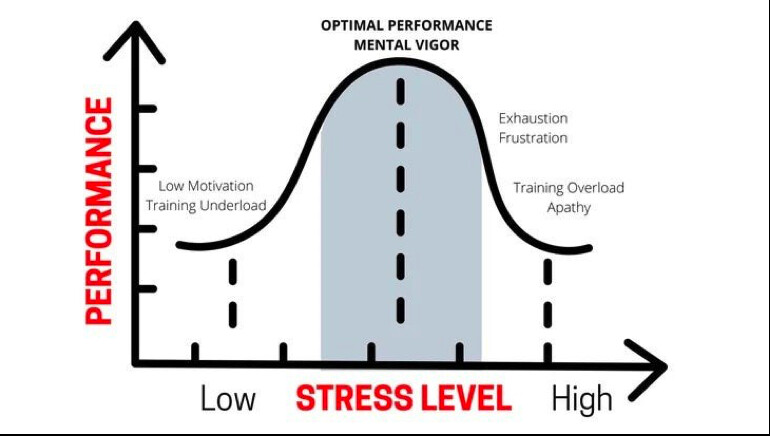Running News Daily
Running News Daily is edited by Bob Anderson. Send your news items to bob@mybestruns.com Advertising opportunities available. Train the Kenyan Way at KATA Kenya and Portugal owned and operated by Bob Anderson. Be sure to catch our movie A Long Run the movie KATA Running Camps and KATA Potato Farms - 31 now open in Kenya! https://kata.ke/
Index to Daily Posts · Sign Up For Updates · Run The World Feed
Life Stress, Work Stress, Training Stress-Your Body Can't Tell the Difference
Jen Yoshida was used to telling people that running two miles a day is what got her through law school. "Once the run was over, I would tell myself that the hard part of the day was over. It made the difference between feeling optimistic about the day and maybe fearing what was coming next."
Yoshida was frustrated then that she didn't getting the same mental or physical boost once she was a practicing intellectual property lawyer and had added swimming and biking to become a triathlete.

"Work is so much more stressful now, so I should be fine with my increased training, right? I thought I was meeting one big challenge with another. Exercise is good for mental health, so I assumed more exercise would be better."
Yoshisa was confused when her increased training schedule wasn't making her more able to confront work-related stress, plus she was running out of steam during workouts. "I was exhausted at work and my fuse was getting shorter. When I completely forgot a meeting with a client, that was the last straw. I knew something had to change."
Except for the few elites among us, most athletes must perform extraordinary balancing acts between work, family, relationships, sleep, nutrition, finances, and training. All of these aspects of life incur stress, but many of us assume that the physical stress from training is different from the psychological stress incurred from everything else.
We have been told that exercise is an excellent stress-reliever, without context or qualifiers, and therefore assume that there is a never-ending dose-response. If some exercise is good for mental health, then why wouldn't more be better? It's All Stress to Your Brain and Body
Whether it's because you've got a huge work project to complete, are going through a tough time in your relationship, or ran a tune-up marathon last weekend, the stress that you are experiencing is all the same. We might be surprised to know that it doesn't matter if one type of stress is more enjoyable than the other or if you perceive one to be "healthier" than the other.
Research shows that all forms of stress are additive and, taken together, will alter the functioning of the body to compensate for the total load. Those compensations can look like anything from fatigue from a few days of pushing your limits, all the way up to osteoporosis from a combination of high stress and low progesterone resulting from months or years of overdoing it.
Those compensations can also look like snapping at your partner out of nowhere or even feeling deep depression or pervasive anxiety. Most of us may be able to connect those feelings with family or work stress but are unlikely to connect that with our training. In fact, many of us will double down on training, thinking that we are doing the right thing to cope or because we are in need of escape.
In those moments, we are not thinking about the research that demonstrates the huge amount of physical stress that training causes because we do not perceive the activity to be psychologically stressful. Unfortunately, our perception is not reality.Stress: The Vicious Cycle vs. the Optimal Curve
Adding more training to manage stress is like adding more wood to a fire you're trying to extinguish. In a review article, John S. Raglin, a professor in the psychology department at Indiana University, Bloomington and a pioneer in groundbreaking studies of mood and endurance sport, clearly states that increasing exercise can also increase stress and negatively affect mental health.
He notes that intention is irrelevant since stress increases either through necessary training or an abuse of training and his overall body of work points to a trend toward greater mood disturbance with increasing amounts of exercise. If we continue to increase overall stress by increasing training, research shows that this chronic physical and mental stress without adequate recovery can cause disruption of the hypothalamic-pituitary-adrenocortical (HPA) axis leading to dysfunction of the endocrine system and yes, overtraining syndrome.
The Yerkes-Dodson CurveHarder to accept is the fact that there is an optimal level of training and life stress for each body. The Yerkes-Dodson curve above illustrates the fact that zero stress will not result in positive gains, but huge amounts of stress will also not result in positive gains. Research shows that the idea of there being a "sweet spot" where stress on the system results in excellent performance without causing overwhelming detriment is fundamental to almost everything we do.
For example, we know that zero water causes dehydration and too much water causes hyponatremia, but we are well-hydrated and healthy somewhere in the middle. We can apply this logic to everything we do and everything around us-there is a perfect amount for everything in nature. However, we must learn to accept the same logic when it comes to stress. There is a perfect amount of training and life stress for every body and mind, where we are alert, engaged, energetic, and thriving. We just have to find it.
Training Doesn't Subtract from Stress Load-but Rest Does
But, isn't exercise a stress reliever? Multiple studies show that exercise certainly does provide a certain amount of stress relief, but it's important to understand that this research is typically conducted for the general population of the USA, which tends to be quite sedentary. Therefore, the study populations are non-athletes and designed to convince people that 20-30 minutes of low-level aerobic exercise 5 times per week is a good idea for general health.
These studies are not designed to address the stress relief needs of high-performing, high-volume athletes trying to fit fifteen hours of training on top of a full-time job.The solution is to take a look at which stresses we have control over and which we do not. We then need to take control by making adjustments, some of which may require us to battle with our own deeply held assumptions about our relationship with training.
For example, we likely can't change our work responsibilities, school schedule, or certain family commitments. However, we can probably do our best to get a bit more sleep, try some time-saving tactics like meal-prepping, and yes, we can skip a workout. We have to challenge the assumptions that we can't cope without training, that training is the only remedy, and that skipping or cutting a session short will detrimentally affect our performance. On the days when we need to decrease the pressure, the best training we can do is no training at all.
While there is no evidence that taking a bit of physical rest will increase stress and promote disease in athletes, there is plenty of evidence that increasing training can do all of that and more.
If you find yourself unable to back off given the clear evidence that you might be heading for trouble, a mental health care practitioner can help you get control before you burn out. Finding and respecting your own sweet spot will ensure that you get to enjoy your runs - for life.
by Trail Runner Magazine
Login to leave a comment




